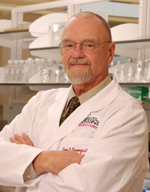 |
Tom Rosenquist, Ph.D. |
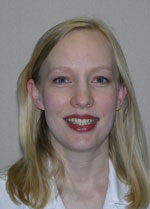 |
Amy Neumeister, M.D. |
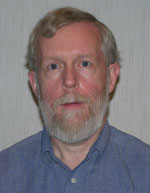 |
Frederick Hamel, Ph.D. |
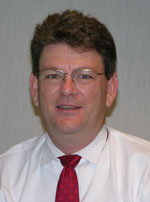 |
James Lane, M.D. |
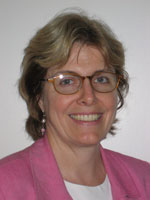 |
Jennifer Larsen, M.D. |
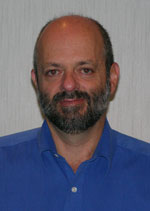 |
Eyal Margalit, M.D., Ph.D. |
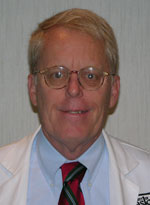 |
Gerald Groggel, M.D. |
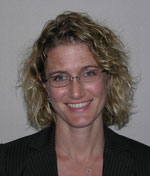 |
Whitney Goldner, M.D. |
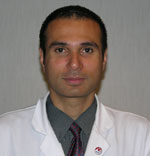 |
Cyrus Desouza, M.B.B.S. |
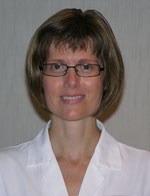 |
Lynn Mack-Shipman, M.D. |
This program is the latest installment of the UNMC Mini-Medical School series and will be held Oct. 16, 25 and 30. The series will focus on type 2 diabetes — the disease, who’s at risk, treatment options and new therapies in development.
The series will be broadcast live from the UNMC Durham Research Center in Omaha to Alma, Atkinson, Broken Bow, Chadron, Columbus, Fremont, Grand Island, Hastings, Holdrege, Imperial, Kearney, Lexington, Lincoln, Lynch, McCook, Neligh, Norfolk, North Platte, O’Neill, Pender, Red Cloud, Rushville, Scottsbluff, Sidney, Tecumseh, Valentine, Wayne and West Point.
The presentations also will be broadcast live to Clarkson West Medical Center, 2727 S. 144th St., Suite 200, and Metro Community College Fort Omaha Campus, 30th & Fort, Building 10, Room 110.
On Oct. 16, the series will be held from 6:30 to 8:45 p.m. CDT. On Oct. 25 and 30, it will be held from 6:30 to 8:30 p.m. CDT.
Before the Oct. 16 session, free health screenings will be held 4:30 to 6 p.m. in Omaha at the Durham Research Center. The UNMC College of Nursing Mobile Nursing Center will provide free height, weight, body mass index, blood pressure and blood sugar screenings. Cholesterol screenings are available for $10. Those planning to have screenings should indicate so when they register for the mini-medical school.
Anyone with the satellite downlink capability can tune into the series on Nebraska Satellite System 2, Channel 106.
Type 2 diabetes is the most common form of diabetes, accounting for 90 percent of the 20 million diabetes cases in the United States.
With type 2 diabetes, either the body does not produce enough insulin or ignores the insulin. When glucose builds up in the blood, it can cause high blood glucose levels that affect the eyes, kidneys, nerves or heart.
Many people with the disease don’t know they have it. Being overweight is one of the primary causes of type 2 diabetes. Less than half of American adults are at a healthy weight and about one-third are obese.
“Chronic diseases and conditions related to weight are major concerns in our country today,” said Jennifer Larsen, M.D., professor and chief, section of diabetes, endocrinology and metabolism and director of the UNMC Clinical Research Center. “Type 2 diabetes and obesity go hand-in-hand, and they’re reaching epidemic proportions worldwide.”
In nearly every developed society, diabetes is ranked among the leading causes of blindness, kidney failure and lower limb amputation. The disease can even be fatal with more than 200,000 people dying in the United States each year of diabetes-related complications.
“Over the last 25 years, we’ve had an epidemic of obesity in our country and a corresponding increase in diabetes,” said Rubens Pamies, M.D., vice chancellor for academic affairs. “The two are related and there are multiple reasons, but certainly diet is a major contributing factor, particularly in lower socioeconomic communities.”
Those with modest incomes tend to choose foods based on cost and availability, Dr. Pamies said, which adds to the problem. Fast food — which tends to be high in fat and calories and low in fruits and vegetables — is cheaper and easier to access, he said.
Dr. Pamies is concerned with the rise in children with type 2 diabetes.
“You see a rise in diabetes at an earlier age, which is likely to increase. That’s the worrisome part,” he said. “It’s a national problem we’ll all have to address. Exercise is something we have to emphasize more. With type 2 diabetes comes a lot of adverse consequences, including premature death and amputation, and other health risks, including stroke, heart disease and hypertension, as well as the financial cost.
“We need to develop some national guidelines beginning with education in schools, such as lunch programs, physical education and nutrition. We also need to put pressure on the fast food industry to provide more nutritional food alternatives,” Dr. Pamies said.
Although there is no cure for the disease, health care professionals and researchers are making strides. Experts know there is a connection between type 2 diabetes and genetic make-up, age, and even race. They’re looking at ways to prevent obesity and potentially type 2 diabetes.
The session titles and content are:
Tuesday, Oct. 16: “Millions Have It, Do You?” will provide an overview of the disease and its risks. Presentations include “UNMC Research Update” by Thomas Rosenquist, Ph.D., vice chancellor for research and professor, genetics, cell biology and anatomy; “Weighing the Risks” by Amy Neumeister, M.D., assistant professor, section of diabetes, endocrinology and metabolism; “Sugar High, Sugar Low, Where Does All the Glucose Go?” by Frederick Hamel, Ph.D., professor, section of diabetes, endocrinology and metabolism; and “Know the Numbers” by James Lane, M.D., associate professor, section of diabetes, endocrinology and metabolism and medical director of The Nebraska Medical Center Diabetes Center.
Thursday, Oct. 25: “Heavy Effects,” will focus on untreated or inappropriately treated diabetes and the consequences, such as kidney failure, blindness and stroke. Presentations include “At the Heart of the Matter” by Jennifer Larsen, M.D., professor and chief, section of diabetes, endocrinology and metabolism and director of the UNMC Clinical Research Center; “More Than Meets the Eye” by Eyal Margalit, M.D., Ph.D., associate professor, ophthalmology & visual sciences and director of the UNMC Retina Service; and “A Lot to Lose” by Gerald Groggel, M.D., professor and chief, section of nephrology.
Tuesday, Oct. 30: “Take Control,” will focus on ways to manage or prevent type 2 diabetes. Learn about the latest research, treatments and strategies. Presentations include “Weighing In …” by Whitney Goldner, M.D., assistant professor, section of diabetes, endocrinology and metabolism; “An Ounce of Prevention” by Cyrus Desouza, M.B.B.S., assistant professor, section of diabetes, endocrinology and metabolism; and “Scaling Back” by Lynn Mack-Shipman, M.D., associate professor, section of diabetes, endocrinology and metabolism.
To register or to find a broadcast site, go online to www.unmc.edu/minimed or call toll free, (877) 852-0013. In the Omaha area, call 559-2900.
While the program is free, nurses can earn continuing education contact hours for $40. Participants must indicate at registration which site they will attend. Contact hours will be credited for each session attended. The UNMC College of Nursing Continuing Nursing Education is accredited as a provider of continuing nursing education by the American Nurses Credentialing Center’s Commission on Accreditation.